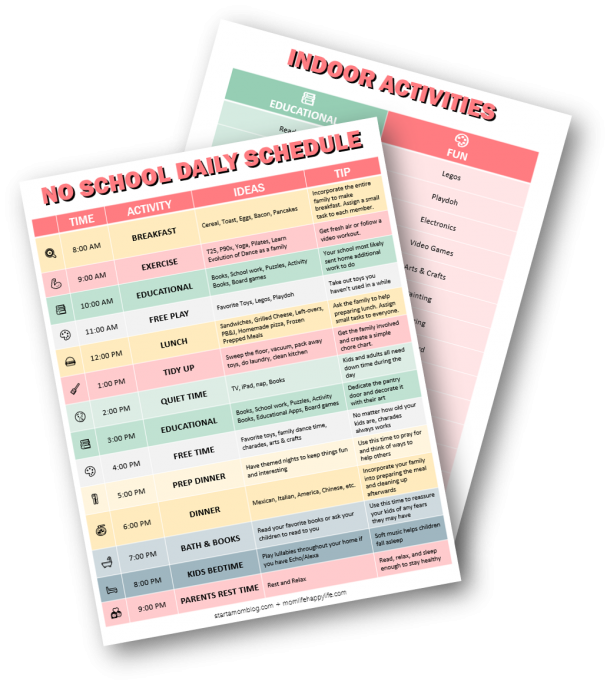
Pregnant bodies are truly incredible.
It’s astounding to think of all the different things going on inside to grow and nourish a new life. As well as a baby, a whole new organ (the placenta) is being created. And the body is creating 20-30 percent more blood than normal.
However, these changes can cause the mother-to-be to feel more than a little tired and ill. Morning sickness is one of the best-known side-effects of pregnancy.
You’ve probably seen a movie where you figure out early on that a character is pregnant. She often feels nauseous, or runs away to get sick at unexpected moments.
Movies tend to exaggerate things, but actually, the way they show morning sickness is pretty accurate!
If you’ve just discovered you’re pregnant, you probably have some questions about morning sickness and what to expect.
Read on to learn more about what morning sickness is, common symptoms, when it usually starts and ends, and steps you can take to get through it.
What Exactly is Morning Sickness?
Morning sickness is defined as nausea and vomiting that occurs during pregnancy.
Not every mother-to-be will suffer from morning sickness. However, it is estimated that 8 out of 10 women will experience it during their pregnancies.
So, it’s good to be prepared.
What Are The Symptoms Of Morning Sickness?
Symptoms of morning sickness can include:
- Nausea
- Vomiting
- Loss of appetite
- Weight Loss
- Dehydration
Nausea and vomiting are the most commonly experienced symptoms. Not surprisingly, a loss of appetite often accompanies these. If you’re feeling ill, or have been throwing up, food can be the last thing you want to think about.
Although morning sickness is a normal part of pregnancy, do make sure to let your doctor or midwife know about it at your antenatal appointments. It’s important for her to know so she can build up an overall picture of your health and pregnancy.
Remember, it’s especially urgent to contact your doctor if morning sickness is making you lose weight or become dehydrated. And if you find your sickness is much worse than you expected, don’t be afraid to seek advice.
It might be tempting to battle on, thinking “I’ll be fine, everyone goes through it.” But you could be part of the small proportion of women who suffer from hyperemesis gravidarum.
What is Hyperemesis Gravidarum?
Around 1 percent of women will suffer from hyperemesis gravidarum, which is an extreme form of morning sickness. The Duchess of Cambridge famously suffered from it during all three of her pregnancies.
Signs to watch out for include weight loss, dizziness and dehydration. Also, keep an eye on your urine: if you notice any unusual changes, get advice immediately.
Symptoms may continue on longer into the pregnancy than those of more typical morning sickness. Take note that if you have had HG once, there is a higher chance you will have it again in further pregnancies.
Never ignore extreme feelings of morning sickness. If you are concerned, contact your doctor or midwife immediately.
What Is a Normal Experience of Morning Sickness?
Not everyone’s experience of morning sickness is the same.
In a group of pregnant women, every single one could have a completely different story to tell. One might get sick a few times a day, another might only feel nauseous at mealtimes. And of course, there may be some who never feel ill at all!
You might even find your own symptoms vary from day to day. Don’t worry, this is perfectly normal. Make the most of the days you are feeling well, and go easy on yourself on more difficult ones.
If it’s your first pregnancy, you may be more likely to experience morning sickness. Your symptoms may also be more severe. But, of course, like everything with morning sickness, there are no guarantees.
Does Morning Sickness Only Happen In The Morning?

Many women are surprised to find themselves suffering from nausea and vomiting at varying times of the day, not just the morning.
For this reason, the name morning sickness is actually quite misleading. In fact, researchers at the University of Warwick recently argued that the name should be changed to “nausea and sickness in pregnancy”.
As part of the research, 256 women kept diaries to track their nausea and vomiting. The results showed that although sickness was most likely between 7am and 1pm, there was still a high chance of it occurring later in the day.
So, don’t panic if you feel ill at times of the day other than the morning. It’s perfectly normal and nothing to worry about.
When Does Morning Sickness Start and End?
Nausea and sickness is mainly associated with the first trimester of pregnancy. For some women, it can be one of the earliest signs they are pregnant.
Morning sickness typically starts around week 6. But, as always, everyone is different. Don’t be surprised if you find yourself feeling nauseous a few weeks earlier or later than that.
Usually, you can expect to be finished with morning sickness by week 16. But it can go on longer for some women, especially those expecting multiples, or suffering from hyperemesis gravidarum.
What Can I Do About Morning Sickness?
There are a few simple things you can do to help you feel better during the weeks you suffer from morning sickness.
Take Note of Any Nausea Triggers
Pregnant women often find that particular smells trigger feelings of nausea. In fact, it’s common to have a heightened sense of smell (hyperosmia) during pregnancy.
Troublesome smells will vary from person to person. But one thing is for sure: you’ll notice pretty quickly what they are!
Food, in particular, can cause problems for many. Sometimes, the thought of a particular food can be enough to trigger a wave of nausea or vomiting.
As soon as you start to recognize your triggers, do everything you can to avoid them. It’s only going to be for a relatively short time, so try not to worry.
Remember, it’s important to let other members of your household know about smells or foods you are having trouble with. If they’re aware, they can help to minimize them around the home.
Keep Hydrated

If you are getting sick often, it’s important to keep an eye on your fluid intake. Drink plenty of water to make sure you don’t get dehydrated. Keep water with you at all times, and take regular sips throughout the day.
Ginger
Many women find that ginger helps to ease feelings of nausea. There many ways to take it, including capsules and tea. Ginger biscuits have the double benefit of being something plain to nibble on when you feel ill. Experiment and see what works for you.
Get Plenty of Rest
It’s normal to feel exhausted during the first trimester, even if you don’t suffer from morning sickness. Rest is really important, and should be prioritized during the first weeks of pregnancy.
Don’t feel embarrassed or ashamed of your need to relax and sleep. Pregnancy is one of the few times in life when it’s expected, so take advantage of it while you can!
As well as this, accept that not everything can be done as perfectly as usual. Perhaps the kitchen doesn’t get cleaned for a few days, or you serve cereal for Sunday dinner. So what? It’s just for a little while.
Take note of the things that cause you stress, and do everything you can to beat it for the coming months. It’s okay to focus on your own needs sometimes, especially when you’re growing a human.
Eat Little and Often
If one of your symptoms is loss of appetite, you might feel like going all day without eating anything. You might even be afraid that if you do eat, you will vomit.
Tempting as it may be, don’t avoid eating completely. It will only make you feel worse, and it’s important to keep your strength up for both baby and yourself.
Try and find some plain foods that you enjoy and eat small portions regularly. Nibbling on a piece of toast is definitely better than nothing.
Get Help With Cooking If Possible
Cooking a meal can often be a difficult task if you’re suffering from morning sickness. And by the time it’s cooked, you mightn’t even feel like eating any.
If you’re the main cook in your home, see if you can get others to share the responsibility for a while. You might find yourself more eager to eat if you haven’t had to prepare the meal yourself.
If necessary, don’t be afraid to serve a cold dish. Sometimes, it can be more bearable to prepare a salad than cook a stew.
Clean Your Teeth After Being Sick
After getting sick, make sure to rinse out your mouth. If possible, brush your teeth. You’d probably do this anyway, just to freshen up. But if you’re getting sick a lot during your pregnancy, you want to avoid your teeth getting damaged from the acid in your vomit.
Wear Sea-Bands
If you’ve ever suffered from seasickness, you’ve probably worn sea-bands on your wrists to help ease the nausea. Sea-bands work by means of acupressure and are often recommended to women suffering from morning sickness. They should be easily available from your local pharmacy.
Visit Your Doctor If You Are Worried About Your Symptoms

This has already been mentioned multiple times. But it really is important for both your own sake and your baby’s.
Morning Sickness: What It Is, When It Starts and What To Do
Hopefully, by now, most of your questions about morning sickness have been answered.
Getting through morning sickness can be tough. But the most important thing is not to worry; it’s perfectly normal and can even be a sign of a strong and healthy pregnancy.
Over to you: have you any more questions about morning sickness? Or do you have any helpful tips for getting through it?
Leave a comment and let me know.

Amy is a mum of two from the west of Ireland. She blogs at www.thememorymum.com, where she helps families to enjoy quality time making memories together. She is also a freelance blog writer for hire.




I think one of the most common diseases in pregnant women is left thigh pain
Which occurs as a result of increased secretion of certain hormones or a decrease in the proportion of calcium in the bones
https://mawso3h.com/causes-of-left-thigh-pain-for-pregnant/
This pain can be overcome by relaxing or taking a warm bath, and of course, consulting a doctor